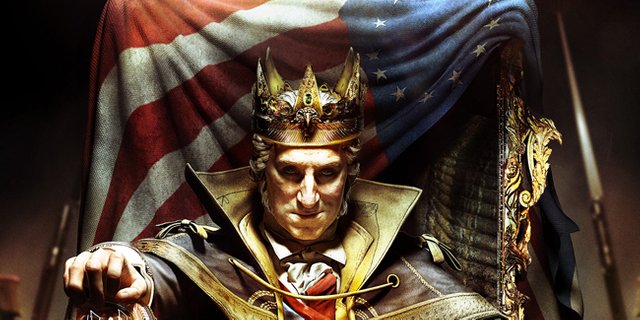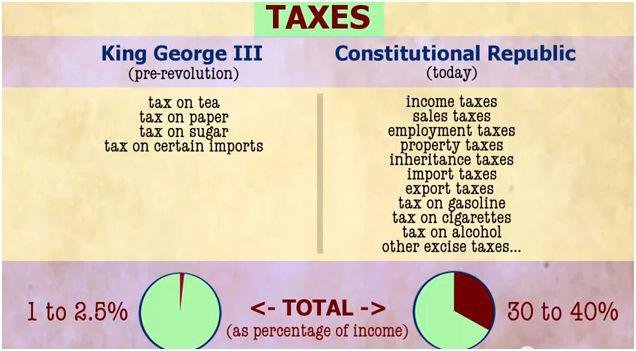Democracy: Worse Than Monarchy?

Democracy: Worse Than Monarchy?
Coming from me, it goes without saying that no form of government is acceptable. To govern another individual predicates ownership of a person to belong to somebody other than the person. All people are entitled to be their own sovereigns; anything else is slavery, by definition. For thousands of years, this inherent right to self-govern has been squandered, trampled, and purged from our minds as children.
I won’t insult your intelligence with an essay about why there’s no divine right of kings. You’ve probably realized by now that monarchy is a stupid concept. Nobody has the right to infringe on your body, liberty, or property; much less on a basis of their genealogy. You get that.
Democracies, however, are a hell of a lot more harmful, tyrannical, and intrusive, than monarchies.
This is counterintuitive for an obvious reason: the people have the ability to vote and elect their masters in a democracy, whereas a monarchy is essentially just rule of whatever the king wants. That, however, is exactly why democracies are more destructive.
Democracy gives the average person the illusion of control over the state. In the mind of the law-abiding taxpayer, the social institution of “government” is not simply a gang of people forcing their command and extortion onto everybody else; but rather it is a collective deity, an almighty abstract, the apparatus of “the people”, and the organized manifestation of “society”.
That is the entire source of democracy’s devastating power.
Nobody in a royally controlled society grows up without questioning why that guy in a golden hat gets to call the shots. Historically, most of them just ignored it, because most kings have been extremely laissez faire, and most people in royalty-ruled societies lived their entire lives without any bothersome interference from government. There’s a clear and present reason for this. If you’re the king, seen as the individual sovereign that controls the state, then anything your state does is seen as your own doing, and if your state is pissing people off: you’re liable to find your head lopped off and displayed on a pike.
If you want to govern people, they must be one of two things:
Option A: Loyal to you
Option B: Apathetic about you
If you’re a monarch, you’re going to have a significantly harder time getting the masses to feel genuinely loyal to you in any personally invested way. After all, you’re just some stranger that was born into a family that has lots of money and power. The people don’t identify with you, most of them probably don’t see you any differently than a modern American sees a powerball winner. Just some lucky bastard. In the eyes of the citizen; you’re not “society”, and you’re not “the country”, you’re simply a powerful human being. In order to maintain your control, you’ll find it much easier as a monarch to just leave the people alone, for the most part, so they collectively don’t give a shit about government, and would even defend your reign from foreign contesters just to maintain their content lifestyles.
Monarchs are accountable to the sword of the people. Democracies are imagined to be “the people”.
If you’re in control of a democratically elected government, you have your citizens by the balls. Democracy actually plays on the subconscious human desire for self-ownership, which the entire concept of government so blatantly disregards. The idea that some guy on a throne is the boss of everybody, just doesn’t feel fair to the tax cattle. Once you’ve been deceived into believing that somebody else has the right to rule you, it feels like a more interactive and dignified arrangement if you have a vote in who it is.
Statism; the belief in government authority, is essentially a religious dogma. Much like other religious dogmas, statism can be a structural pillar to a person’s thinking patterns. It is the inherent instinct of all people to seek out the security associated with community and alliance. Democracy cloaks the state with the facade of community. The relationship between citizen and monarch is sustained by apathy, while the relationship between citizen and democracy is one rooted in loyalty. Emotional loyalty to an organization is a lot stronger of a tool than apathy towards it. If your victims don’t mind you, you can screw them over somewhat. If your victims are loyal to you, you can do whatever you want to them.
Democracy blurs the mind of the victim with mythological deities designed to dogmatize the divine authority of the ruling class.
Concepts as fundamentally ridiculous as a social contract, consent of the governed, “public” jurisdiction, and patriotism, are prominently chiseled into the victim’s mindset through the goggles of majority rule. The concept of majority rule assumes violent crime to be moral so long as the perpetrator of the violence has a fanbase that outnumbers the victim. The citizen owned by a democracy views the actions of the state apparatus to be the actions of himself, his neighbor, his family, and his community. He hallucinates that the person kidnapping another person for selling a plant, is actually “society” performing a “lawful arrest”. If the state apparatus does something the citizen doesn’t like, he is to accept it anyway and only even consider attempting to make political change if it is within the guidelines outlined by the almighty state: voting, peaceful protest, running for gang office, lobbying, or writing your local master.
Under the guise of collectivism, democracy paves the road for atrocities.
Think of an instance of genocide. Pick a big one.
Chances are, the government responsible for it was one viewed as representative of the people. The idea that aggressive actions are inherently justified if they represent the will of the political majority, would imply that Hitler did nothing wrong. By introducing the idea of collective responsibility, personal responsibility is removed from the minds of the state’s enforcers. A king’s enforcer knows full well he is just a henchman, perpetuating the extortion that funds his own salary. He will meet more resistance if he harms people under a king, than he would if his actions were the manifestation of democracy. The police officer or soldier of the democratic state, does not feel personally responsible for his own actions, as he is “serving his country”. For this reason, he will encounter far less resistance by the victims. The regimes of genocidal tyrants like Josef Stalin, Mao Tse Tung, Pol Pot, and Kim Il Sung, depend heavily on widespread public complicity.
A supported gang is a powerful gang.
Here’s a chart of the colonists’ tax rates under King George III, compared to modern American tax rates

A tax rate is as high as the ruling class can get away with. A monarch would likely get assassinated with tax rates as high as those in a democracy. As I’ve explained above, this is because the people see the democracy as “us” and the monarchy as “them”. A tax demanded by a democracy is regarded as a “debt to society”, therefore it is liable to be much higher. If you tell people in modern America that taxation is theft, most of them will just laugh it off, under the assumption that everybody must believe taxation is the barrier between civilization and chaos. If you were to tell people in colonial America under King George III that taxation is theft, they probably would’ve agreed with you.
So democracy means higher taxes.
So what?
I'll tell you what.
Higher taxes means more money to be spent in the name of political interests. Do you think King George III could've afforded the level of nanny-state policing, mass-incarceration, intrusive surveillance, perpetually endless war, and overall tyranny perpetrated consistently by the U.S. Federal Government of today?
Not a chance. Furthermore, he wouldn't have had the level of incentive to oppress people that democratic bureaucrats do. This is because of the entrance for cronyism that democracy introduced.
Historically, most monarchies have practiced feudalism. The feudal government's labor was usually sourced from serfs that were coerced into working for the king's lords directly. Under the democratic system, the people are slaves to the state indirectly. The citizen works of his own accord, with a portion of his earnings stolen by the state. The stolen money is what's used to employ people to do the bidding of the state. The more money being spent, the more money can be taxed. The more taxed money the bureaucrats can allocate, the more opportunity they have to capitalize on their own power.
With the introduction of democracy, came the dawn of cronyism.
If you're in a position of deciding what contractor gets millions of stolen dollars to build a road, you're going to give it to whoever will give you the largest cut of the dough. This is why tax rates are always gradually rising in democracies. This is the reason for seemingly pointless spending on things like keeping millions of people in cages and millions of others as the hands to a war machine. A prisoner is profit, a missile being manufactured is profit, everything your stolen money is spent on is, in some way, creating profit for your masters.
Politicians, unlike kings, are almost never held accountable for their actions. They can tax at their leisure, criminalize anything that keeps their prisons filled, and murder millions of people with impunity. This is because the voting cattle are divided into political factions - conservatives, liberals, etc - that point horizontally and blame each other for the actions of the state apparatus. The result is a seemingly endless back-and-forth cycle of tyranny split between the left wing and the right wing, both too drunk on the collectivist groupthink of democracy to recognize that both wings belong to the same catastrophic bird.
@jakemccauley
I would rather be ruled by the cruelty of One rather than the insanity of the many
if you get a malignant monarchy you are only being raped by one.
if you get a malignant democracy you are gang raped by the majority. i'll take neither, thank you.
Democracy, you get to vote for the same people all of the time.